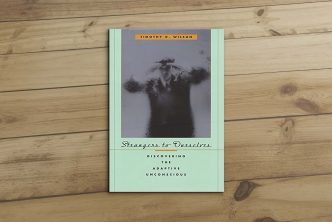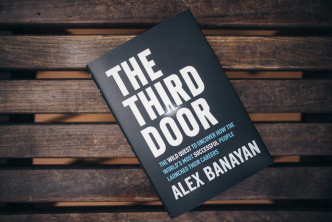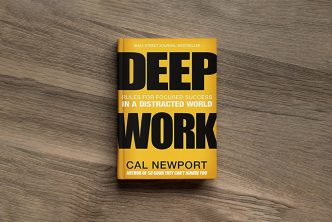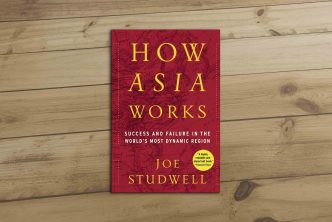BETWEEN PROBITY AND SELF
by Charles Asiegbu
REVIEW: My Transition Hours, by Goodluck Ebele Jonathan. Ezekiel Press (November 2018) Length:194 pages.
Over time, political instability has been a dominant feature in most African countries’ democracies, leaving scars on their identity and faulted cohesion. The precariousness that comes with an unstable political environment reflects in the pace of economic development and growth of these countries. The disagreement, enmity, ego, and greed that emanates from the political class in their scheming to gain control of the state and resources are frequently the cause of the instability. We can mention Libya and Cote Ivoire, but a graphic example is the ouster of President Yahya Jammeh of Gambia by Adama Borrow in 2017. As stated by the BBC in 2017, “Mr. Jammeh has ruled The Gambia since taking power in a coup in 1994. Mr. Jammeh initially accepted that Mr. Barrow had won the election but later reversed his position and said he would not step down. He declared a 90-day state of emergency calling for “peace, law and order” after what he said were irregularities in the election process. The commission later accepted that some of the results it initially published contained errors but said they would not have affected Mr. Barrow’s win. Mr. Jammeh has said he will stay in office until new elections”. According to the report, about 26,000 Gambians were fearful that violence could erupt and sought refuge in Senegal.
The reverse was the case in 2015 in Nigeria. Goodluck Jonathan, the author of this book, “My Transition Hours”, and former president of Nigeria, shared a brief account of his stewardship as president of the most populous black nation on earth and the build-up of events in his quest to be re-elected president in 2015, alongside, the moments during his transition.
By a stroke of luck, Goodluck Jonathan became the substantive president of Nigeria on the 5th of May 2010 after the demise of the then-president Umaru Yar’Adua. As a lecturer and zoologist, he did not believe, in his wildest imagination, that a day would come when he would be president of Nigeria. His entry into mainstream politics was more or less accidental. According to him, a gubernatorial aspirant from his state, Bayelsa, persuaded him to become his running mate in 1999. The burden to make a difference in people’s lives and the opportunity presented had informed his decision to accept the challenge.
The author reckoned that no government was free from errors, as governance was a process, and his administration was blackmailed and labelled corrupt in both the print and electronic media without recourse to the reforms it introduced to curb corruption. An excellent example of the fight against corruption was in the agricultural sector; findings proved that the State and Federal Governments were spending billions of Naira on fertilizer. However, only 10{1c02100822988c48c7b0a484ab61ac3d7f398d67c2f66594d88b2db33072d9d9} or less of the fertilizer revenue went directly to the farmer, with 90{1c02100822988c48c7b0a484ab61ac3d7f398d67c2f66594d88b2db33072d9d9} stolen and embezzled. His administration introduced an electronic wallet through which farmers got their fertilizer revenue directly deposited into their accounts, which severed the ties of corrupt intermediaries.
Repeatedly called “corrupt,” his administration supported the institutional development of secure systems and mechanisms to rein the menace in public service and plug revenue leakages. These included the development of the Government Integrated Financial Management Platform, the Single Treasury Account (TSA), the Integrated Payroll and Personnel Information Systems (IPPIS) and the Bank Verification Number (BVN), in addition to the biometric registration of civil servants and pensioners, which saved the country over N-100 billion previously paid to ghost workers and
ghost pensioners.
Gearing-up for the 2015 general elections, he recorded acts of betrayal from associates and party members, campaigns of calumny from the opposition, and the promotion of primordial sentiments above logic by highly placed individuals – for them to benefit from the system. Goodluck Jonathan recalled the role of foreign interests during the postponement of the election. While he received a call from the then British prime minister, David Cameron, expressing his concern about the delay, the United States Secretary of State, John Kerry, came from the United States to express further worry about the postponement. According to him, “it was at once comic and sobering. John Kerry showed great reluctance in accepting our explanation, giving reasons for the postponement. It was funny because, right inside our eyes, we knew why the agitation was so much, but beyond the dialogue of eyes, the game of care took the throne”.
Following the intelligence reports and grave facts at his disposal, Goodluck Jonathan was well- aware that winning was not in the offing for his party 24 hours to the election. According to him, “Too many people were ready for mindless slaughter. The multiple massacres in memory of the killing of 500 people in the north after the 2011 presidential election came alive.” Goodluck Jonathan figured that the announcement of the final results could take a different dimension. Cut in between fighting till the end and bowing out honourably, he chose the latter by putting a call across to his opponent and congratulating him even before the declaration.
Considering Nigeria’s place in Africa, this honourable act set a new standard for African leaders and unusually promoted democracy. In 2016, John Mahama of Ghana towed the same line of action after losing to Nana Akufo-Addo. In a tweet by Nana Akufo-Addo, he stated, “A few minutes ago, I received a call from President @JDMahama congratulating me on winning the 2016 Presidential Election. #ChangeHasCome”. With the resumed call for youth participation in governance, this book is recommended for aspiring young politicians, seating politicians, and scholars interested in power, peace and conflict, democracy, and elections.







